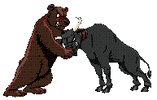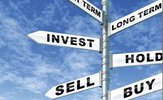- Joined
- 28 December 2013
- Posts
- 6,392
- Reactions
- 24,319
So, is risking more in a bull market than a bear market an edge? Is applying commonsense an edge?
Apologies for this brief post. I was becoming frustrated by the increasing complexities in the discussion about a topic, trading for profit, that is best kept simple and uncomplicated.
@peter2, I hear your frustration and you raise a bunch of fair points. I was pleased with how the conversation was playing out. After some consideration, it is wise to avoid unnecessary complexity when discussing trading and instead focus on the core principles, that's what most are interested in.
The simplicity of the trading process can get obscured sometimes. To bring things back to the center, I agree the discussion should revolve around how to earn "consistent" profits over time through a rules-based approach. Using a rules-based approach is certainly not gambling or relying on luck, it just removes human involvement to some degree.
In saying all this, I believe @ducati916 raised a valid point about trading with a "TRUE EDGE or a PSEUDO-EDGE". As a trend trader, I believe my trading results are more to do with the markets than anything else.
Skate.





